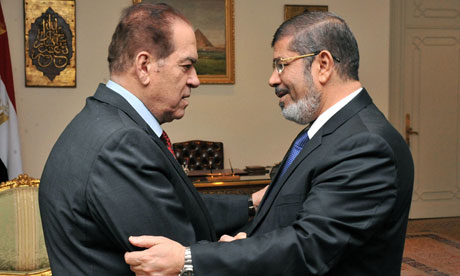Egypt’s Minister of International Cooperation Rania Al-Mashat inaugurated, on Saturday, the new expansions at the wastewater treatment plant located in the Al-Hubail region of Luxor.
The inauguration took place in the present of US Ambassador to Egypt, Jonathan Cohen, and a number of representatives from the United States Agency for International Development (USAID).
The expansion increases the treatment facility’s capacity by about 36,000 cbm/day, and will serve 250,000 people in Luxor and the surrounding villages. Residents will be provided with reliable water and sanitation services, with the station set to serve about 332,000 people until 2037.
The ministerial visit to Luxor also saw an inspection of several development projects in the agricultural sector, highlighting its importance to the Egyptian economy. Luxor is also being developed as an agricultural powerhouse in Egypt, due to the richness of the surrounding lands.
Minister Al-Mashat said that the expansion of the wastewater treatment plant in Luxor complements the Egyptian Facility Management Agreement, which aims to develop drinking water and sanitation. The agreement, worth about $450m, was signed between the Egyptian government, represented by the Ministry of International Cooperation, and the USAID.
“This project in particular is going to increase the wastewater services available to people in Luxor district to reach over 300,000 people, including 50,000 people in rural areas and villages who never had this service before,” Ambassador Cohen said, “It is going to materially transform their lives to give them a boost in the quality of life through the quality of water they have.”
Minister Al-Mashat said the development projects located in the Luxor area come as part of her ministry’s efforts to apply the principles of economic diplomacy. These principles include regularly organising multi-stakeholder platforms, to ensure that all development projects are streamlined and effectively coordinated.
This will also accelerate the pace of development in achieving the UN’s Sustainable Development Goals (SDGs), whilst also adopting a consistent Global Partnerships Narrative through the People&Projects&Purpose (P&P&P).
The water and sanitation projects in Luxor are among the most prominent that will help Egypt achieve its National Development Strategy 2030, consistent with SDGs.
Minister Al-Mashat said that the projects cover Goal 3 for good health and well-being, Goal 6 for clean water and sanitation, and Goal 8 for decent work and economic growth.
“As part of our partnership with Egypt, the US has provided about $3.5bn to provide drinking water to 25 million citizens in Egypt,” Cohen added, “It has also provided more than $1bn to develop productivity and market agricultural crops.”
The Egypt-USAID cooperation portfolio currently stands at about $814.6m, which has contributed to several projects across different sectors. These include a centre for packaging and exporting farmers’ products, a sorting and packaging station in the village of Tafanis, several projects to strengthen food security, as well as the water desalination plant.




